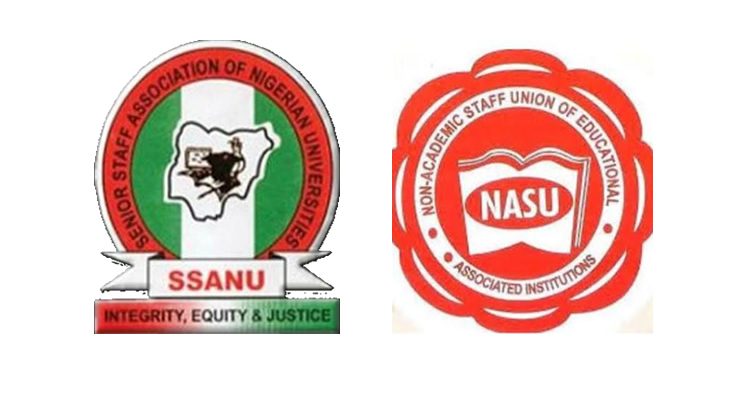The non-payment of April 2025 salaries to members of the Senior Staff Association of Nigerian Universities (SSANU) and the Non-Academic Staff Union (NASU) across federal tertiary institutions has ignited concerns of potential neglect and discriminatory practices. The delay, suspected to be connected to the recent transition from the Integrated Personnel and Payroll Information System (IPPIS) to the Government Integrated Financial Management Information System (GIFMIS) platform, has created financial strain and a sense of unease among university workers. This transition, intended to streamline payroll processes, appears to have inadvertently created a significant disruption in salary disbursement, specifically impacting these two crucial university staff unions.
SSANU President, Mohammed Ibrahim, has formally addressed the issue in a letter to the Accountant General of the Federation, expressing deep concern and frustration over the recurring delays. The letter, dated May 7, 2025, and titled “Concern Over the Consistent Delay in the Payment of Monthly Salaries of University Workers,” also includes the Minister of Education, Dr. Tunji Alausa; the Minister of Labour and Employment, Dr. Mohammed Maigari Dingyadi; and the Executive Secretary of the National Universities Commission as recipients. This wide distribution underscores the seriousness of the situation and the union’s intent to hold the government accountable for the timely payment of salaries.
Ibrahim’s letter highlights the consistent two-week delay in salary payments for SSANU and NASU members compared to other federal workers, characterizing this discrepancy as not only an administrative lapse but also a form of discrimination. He explicitly links the delay to the migration to GIFMIS and emphasizes the potential breach of the 2022 agreement between the Federal Government and the Joint Action Committee of SSANU and NASU, which stipulated that no union member would face repercussions for participating in the previous strike. The delay is, therefore, perceived as a violation of this agreement, further escalating the tension between the unions and the government.
The letter serves as a stark warning, emphasizing the potential erosion of industrial harmony within the university system if the issue remains unresolved. Ibrahim urges the Accountant General to initiate a thorough investigation into the matter and implement immediate solutions to ensure timely salary disbursements. He firmly states that any further delay will be construed as a deliberate act, potentially leading to further action by the union to protect the rights and well-being of its members. This indicates a potential for renewed industrial action if the government fails to address the concerns raised.
The non-payment of salaries has been corroborated by university lecturers across various institutions, adding weight to the unions’ claims. An anonymous lecturer at the University of Nigeria, Nsukka, confirmed the delay, highlighting the unique predicament of university staff being the only category of federal workers yet to receive their April salaries. This statement reflects a growing sense of injustice and frustration among university staff, who feel singled out and unfairly treated by the government’s apparent oversight.
The delay in salary payments has far-reaching implications, impacting the financial stability of university staff and their families, and potentially disrupting the smooth operation of universities across the country. The perceived discriminatory nature of the delay exacerbates the situation, creating a sense of distrust and resentment towards the government. The union’s firm stance and the open support from lecturers indicate a potential escalation of the issue if the government does not take swift and decisive action to rectify the situation and restore confidence in the payment system. The ongoing situation underscores the importance of effective communication and transparency in government processes, especially concerning matters as crucial as salary payments, which directly affect the livelihood of thousands of individuals.














